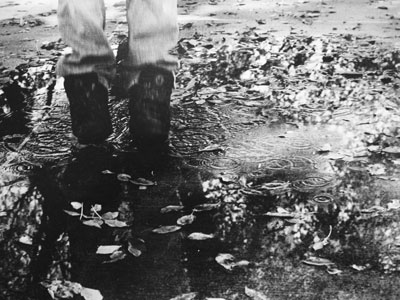All Nonfiction
- Bullying
- Books
- Academic
- Author Interviews
- Celebrity interviews
- College Articles
- College Essays
- Educator of the Year
- Heroes
- Interviews
- Memoir
- Personal Experience
- Sports
- Travel & Culture
All Opinions
- Bullying
- Current Events / Politics
- Discrimination
- Drugs / Alcohol / Smoking
- Entertainment / Celebrities
- Environment
- Love / Relationships
- Movies / Music / TV
- Pop Culture / Trends
- School / College
- Social Issues / Civics
- Spirituality / Religion
- Sports / Hobbies
All Hot Topics
- Bullying
- Community Service
- Environment
- Health
- Letters to the Editor
- Pride & Prejudice
- What Matters
- Back
Summer Guide
- Program Links
- Program Reviews
- Back
College Guide
- College Links
- College Reviews
- College Essays
- College Articles
- Back
A Man Named Weisel
Eliezer Wiesel was born in 1928 in what is now Romania. He was Jewish. Wiesel lived with his mother, father, and three sisters. He enjoyed studying religion at a nearby Jewish college or seminary called a yeshiva. In addition to his studies at the yeshiva, he learned a great deal from his mother, grandfather, and liberal Jewish father.
However, in 1944, at fifteen years of age, Wiesel’s life was turned upside down. Nazis invaded Romania and sent all Jews to Poland. Wiesel and his family ended up in Auschwitz. He and many others had to endure deplorable conditions. Guards beat them at every opportunity, they were given little if any food, and were forced to work countless hours with no rest. Failure to follow orders would result in death or torture. It was in this “death camp” that over one million people died. Two of that million were Wiesel’s mother and sister. Later on, he and his father were transported to Buchenwald where his father died shortly before the camp’s liberation in 1945.
In just one year, Wiesel had endured more than most people endure in a lifetime. He and two of his sisters were all that was left of the family Wiesel once knew. In 1948, at the age of eighteen, he began studying at Sorbonne in France. It was in France that he began to study journalism and write for both French and Israeli publications. He also became friends with his colleague Francois Mauriac. It was Mauriac who persuaded Wiesel, during an interview, to write about his experiences in the death camps. Wiesel’s memoir, “Night”, would become an internationally acclaimed best-seller, be translated into more than thirty languages, and be considered a seminal work on the horrors of the Holocaust. This first book was followed by two more novels, “Dawn” and “Day”.
Along with writing more than sixty books, Wiesel has become an international activist and figure of peace. He has spoken out against injustices in many different countries including Rwanda, Cambodia, Bosnia, and South Africa. He was appointed by President Carter in 1978 as Chairman of the President’s Commission on the Holocaust. Currently, this extraordinary gentleman is president of a foundation created by his wife and himself to fight indifference, intolerance, and injustice. Wiesel has also been honored with awards from across the world ranging from the United States Presidential Medal of Freedom to the French Legion of Honor’s Grand Croix.
Another one of Wiesel’s many accomplishments is his ability to teach. In 1976, he became the Andrew W. Mellon Professor in the Humanities at Boston University. Wiesel has also served as the Distinguished Professor of Judaic Studies at the City University in New York, and the first Henry Luce Visiting Scholar in Humanities and Social Thought at Yale University.
In his acceptance speech for receiving the Noble Peace Prize, Wiesel said, “I have tried to keep memory alive…Because if we forget, we are guilty, we are accomplices.” However I think, that the same can be said of us if we neglect to teach and to learn. It saddens me to think that before I began my research I had never even heard the name Eliezer Wiesel. This man is truly great. Though he endured one of the most horrific events in the history of the world, he has not lost his desire to see and to do good. Eliezer Wiesel did not lose his faith in mankind, he did not sit idly and wait for someone to save him; Wiesel persevered. When men threw him into a camp known for its cruelty and killing, he persevered. When he lost his family and had nowhere to turn, he persevered. When asked to relive the terror of those events in order to share them with others, he persevered. To this day he perseveres.

Similar Articles
JOIN THE DISCUSSION
This article has 0 comments.
